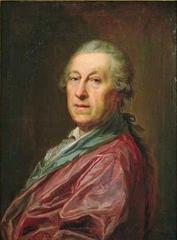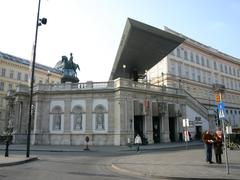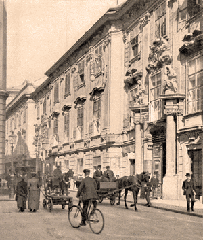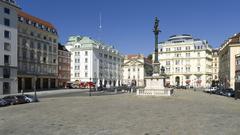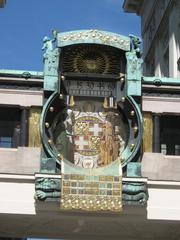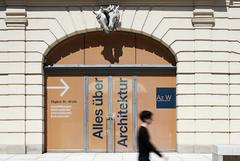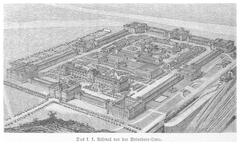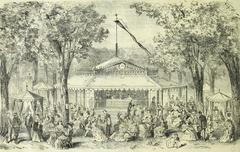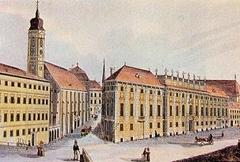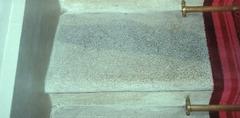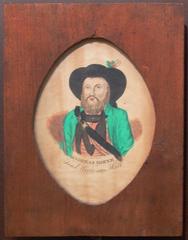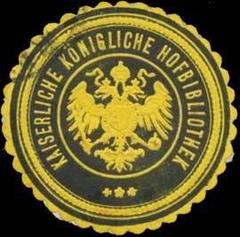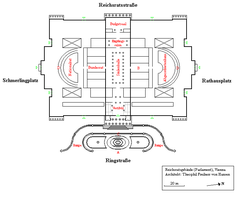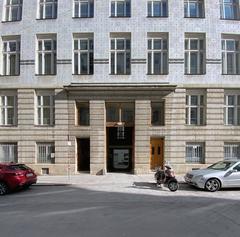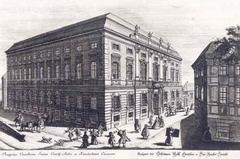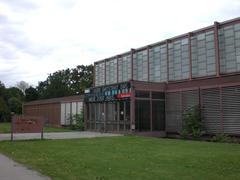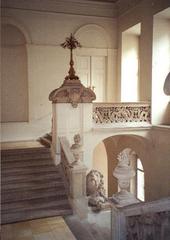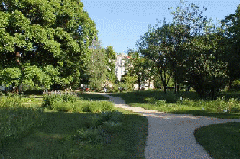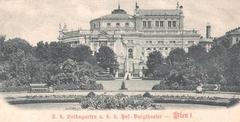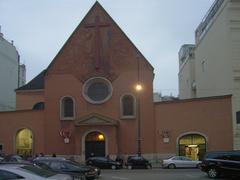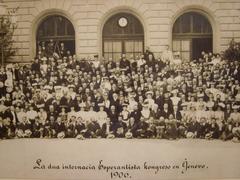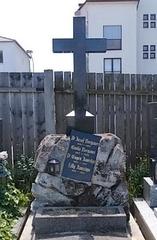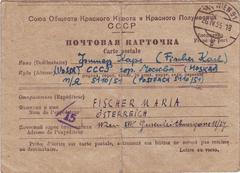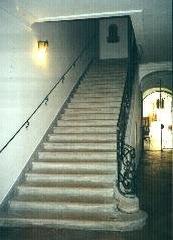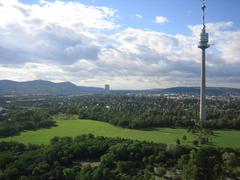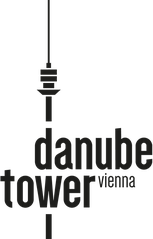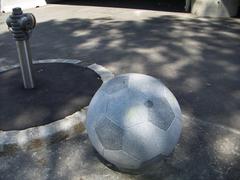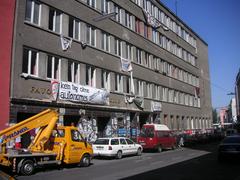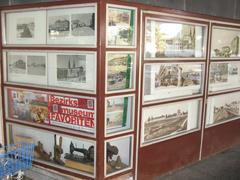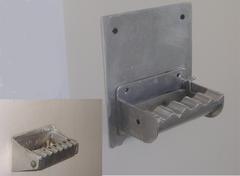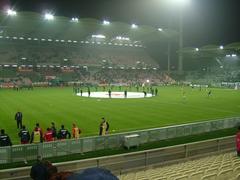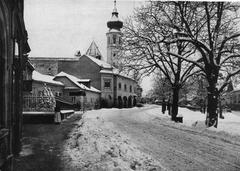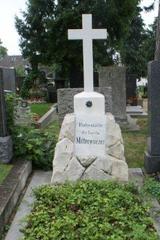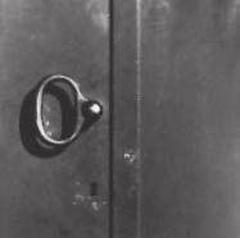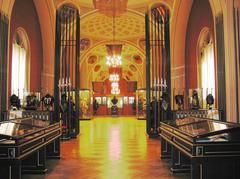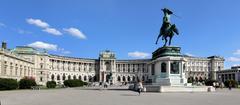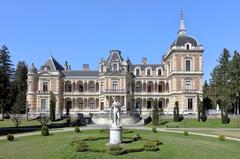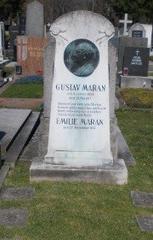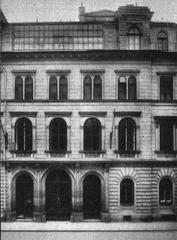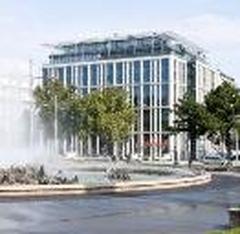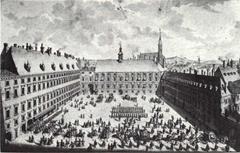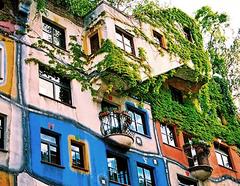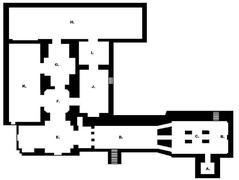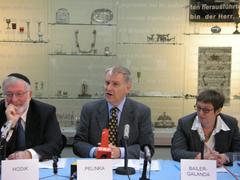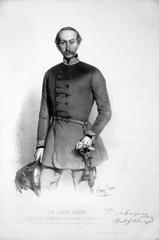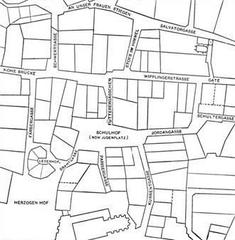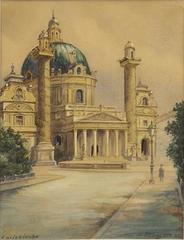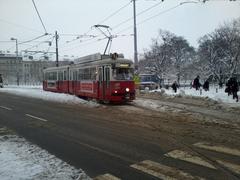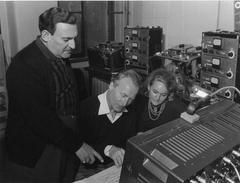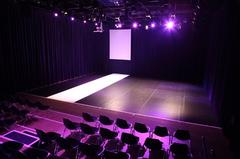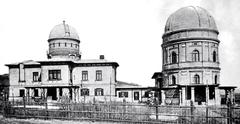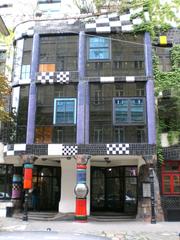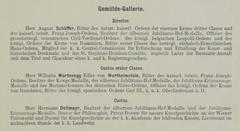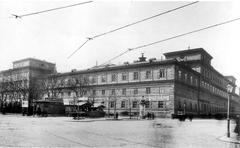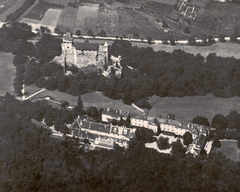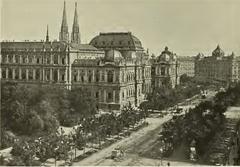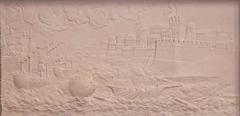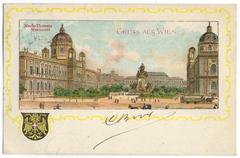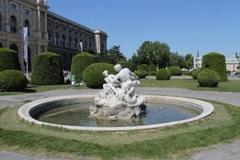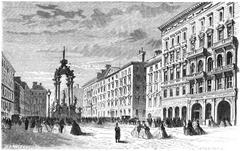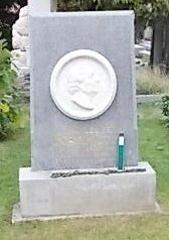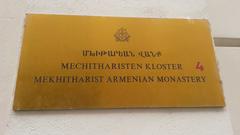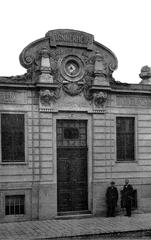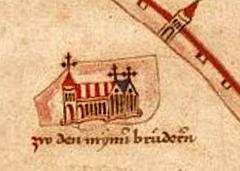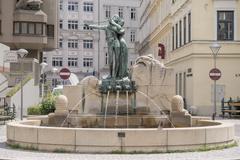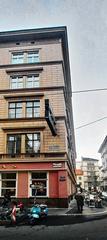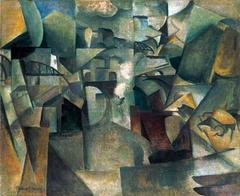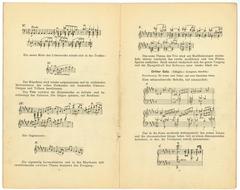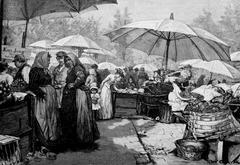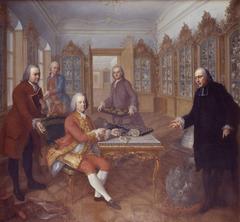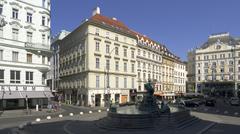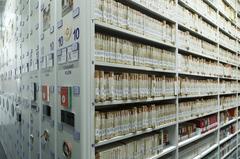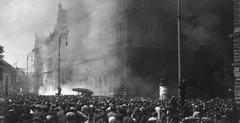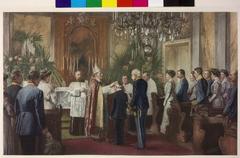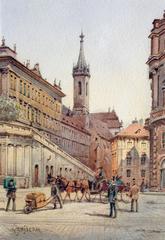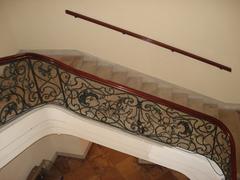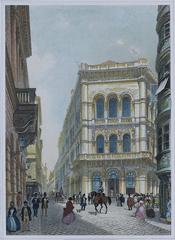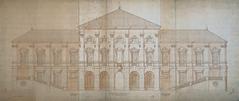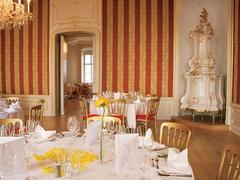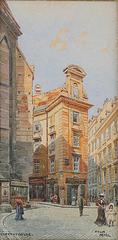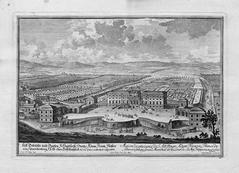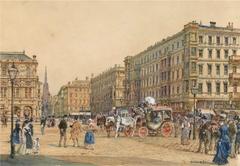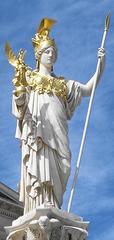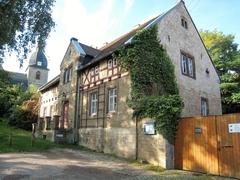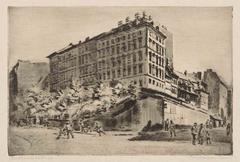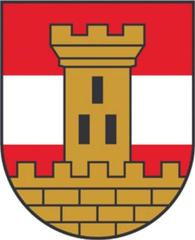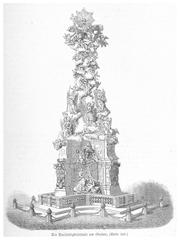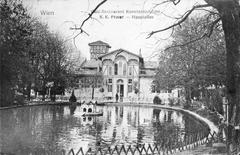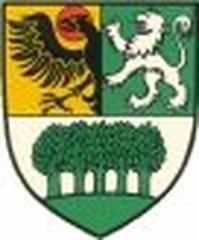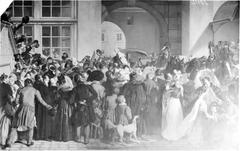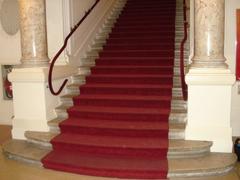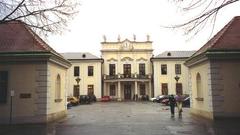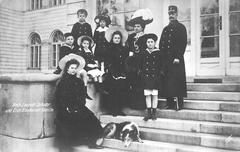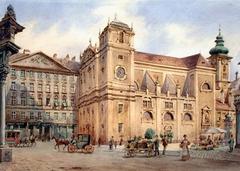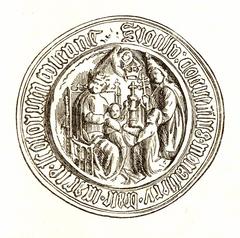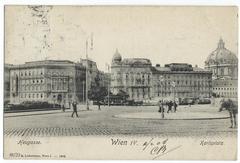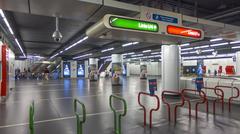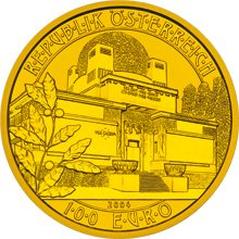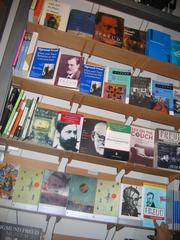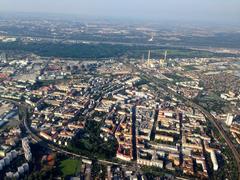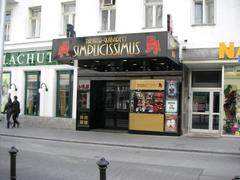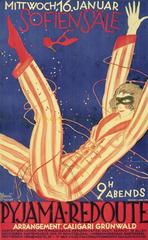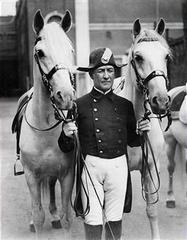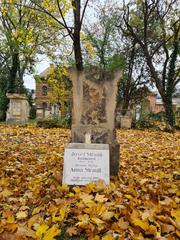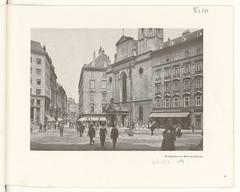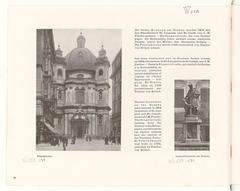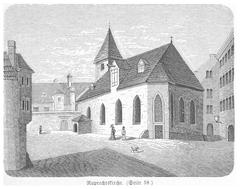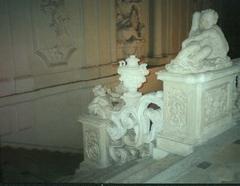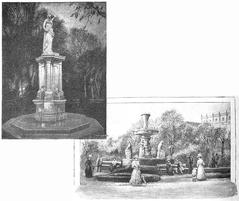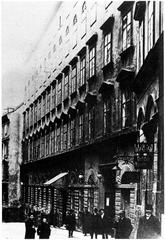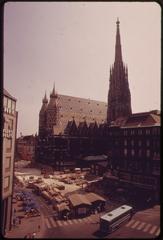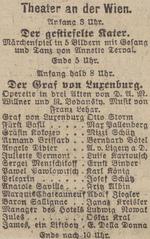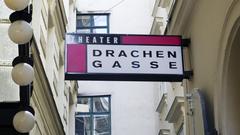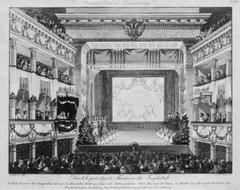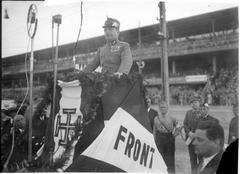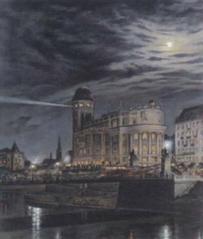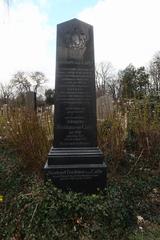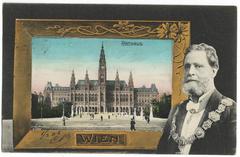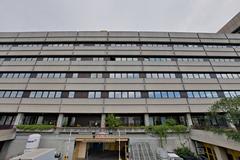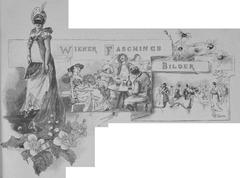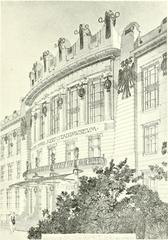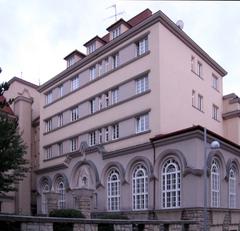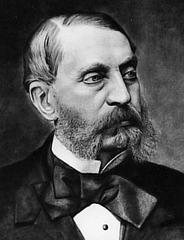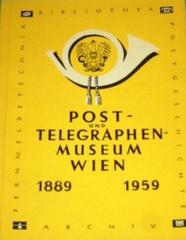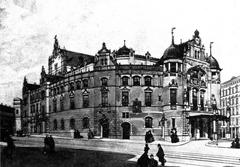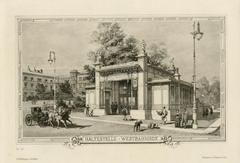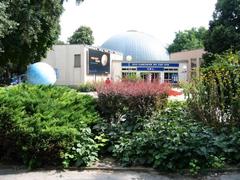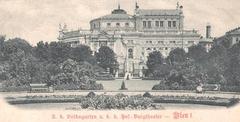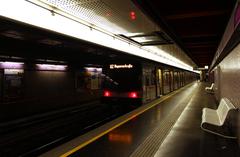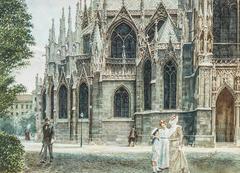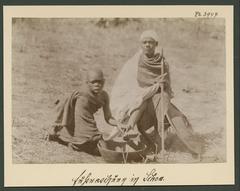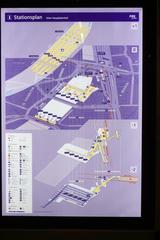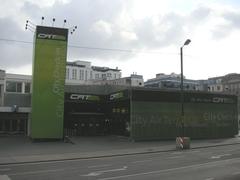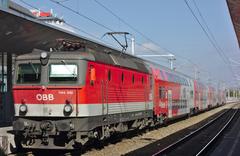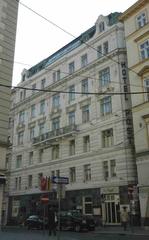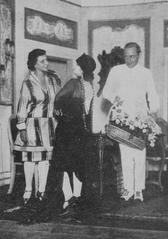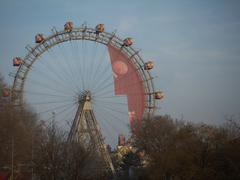
Ferry Dusika Hallenstadion Vienna: Visiting Hours, Tickets, and Visitor Guide
Date: 04/07/2025
Introduction
Nestled in Vienna’s vibrant Leopoldstadt district, the Ferry-Dusika-Hallenstadion was a landmark of Austrian sports and modern architecture from its opening in 1976 until its demolition in 2021. Famous for being Austria’s only indoor cycling velodrome and a versatile venue for athletics, gymnastics, and international competitions, it played a key role in Vienna’s sporting and cultural life. Named after the acclaimed Austrian cyclist Franz “Ferry” Dusika, the stadium’s legacy endures through the new, sustainable Sportarena Wien rising on its historic site. This guide delivers a detailed overview of the venue’s history, its architectural and cultural significance, practical visitor information, and what’s next for sports fans in Vienna (mappaustria.com; fp-arch.at; vienna.at).
Table of Contents
- Historical Overview
- Transition to Sportarena Wien
- Visitor Information
- Frequently Asked Questions (FAQ)
- Conclusion and Key Takeaways
- Official Links and References
Historical Overview
Origins and Naming
The arena was conceived during the mid-1970s to meet Vienna’s growing demand for a multi-purpose indoor sports venue. Completed in 1976 as the “Wiener Hallenstadion,” it quickly became the epicenter of elite and community sports. After the passing of Franz “Ferry” Dusika in 1984, a celebrated Austrian cyclist, the arena was renamed in his honor, solidifying his legacy within Austrian sports culture (mappaustria.com; wikiwand.com).
Architectural Significance
Ferry-Dusika-Hallenstadion’s design was notable for its distinctive circular structure, prefabricated concrete components, and innovative steel membrane roofing. Spanning a diameter of approximately 115 meters and a volume of 195,000 cubic meters, the venue offered flexible configurations for various sports and events (fp-arch.at). Its standout feature was Austria’s only indoor cycling velodrome, engineered by Herbert Schürmann, with removable straights and seating designed for inclusivity (fp-arch.at).
Notable Sporting and Cultural Events
The stadium hosted an impressive roster of international events:
- 1987 UCI Track Cycling World Championships (mappaustria.com)
- European Athletics Indoor Championships (1979 & 2002) (wikiwand.com)
- 1999 Men’s European Volleyball Championship
- 2010 European Judo Championships (mappaustria.com)
- Regular indoor football tournaments, community sports, and occasional concerts (vienna.at)
Transition to Sportarena Wien
Rationale and Redevelopment
By the early 2020s, city officials determined that the original structure could no longer meet the evolving requirements for modern sports infrastructure. After its final cycling competition in July 2021, Ferry-Dusika-Hallenstadion was demolished to make way for the new Sportarena Wien—a modular, state-of-the-art complex designed to serve both elite athletes and the wider community (Stadt Wien Presse; Krone.at).
The redevelopment is part of Vienna’s investment in long-term, sustainable sports facilities, with €133 million devoted to Sportarena Wien alone (Krone.at).
Architectural and Sustainability Innovations
Sportarena Wien is designed as a flexible, multi-level complex with three independently operable halls, allowing for simultaneous training and competition. Movable tribunes and modular layouts accommodate up to 3,000 spectators and a wide range of sports (WSE).
A hallmark of the project is its commitment to sustainability:
- Material Reuse: 95% of demolition material from the old stadium was recycled or reused, achieving a 75% recycling rate for all deconstruction and excavation (Stadt Wien Presse).
- Energy Efficiency: The new arena is powered entirely by renewable energy and aims for “klimaaktiv Gold” certification (Krone.at).
- Social Responsibility: The project prioritized accessibility, eco-friendly practices, and community engagement, aligning with Vienna’s broader sustainability goals (WorldMagZone; Anpedi).
Visitor Information
Location & Accessibility
Address: Engerthstraße 267-269, 1020 Vienna, Leopoldstadt district.
The site is easily accessed via the U2 subway (Stadion station), tram, and bus lines. Public transport is highly recommended due to limited parking and Vienna’s traffic (vienna-trips.at).
Visiting Hours and Tickets
- Ferry-Dusika-Hallenstadion: No longer open to the public since its demolition in 2021.
- Sportarena Wien:
- Opening Hours:
- Monday–Friday: 8:00 AM – 10:00 PM
- Saturday–Sunday: 9:00 AM – 8:00 PM
- Ticketing:
- Admission is free for public training sessions and community events.
- Competitive events and tournaments require tickets, available online or at the box office. Prices range from €5–25, with group and family discounts.
- Guided tours can be booked in advance, especially for architecture and sustainability highlights (Stadt Wien Presse).
- Opening Hours:
Amenities and Services
- Barrier-Free Access: Facilities for visitors with disabilities, including step-free entrances, elevators, and accessible restrooms.
- Food & Beverage: Kiosks serve snacks and drinks during events; a wider selection is available in the Leopoldstadt district.
- Merchandise: Souvenirs and event memorabilia available during major competitions.
- Restrooms: Well-kept restrooms, with family and baby-changing facilities.
Tips for Visitors
- Check event schedules in advance as hours and access may vary (stadthalle.com).
- Arrive early for major events due to security checks.
- Use public transport or cycle to the arena; bike racks are available.
- Respect local customs—punctuality and polite conduct are valued in Austrian venues.
- Nearby Attractions: Combine your visit with trips to Ernst-Happel-Stadion, Wurstelprater Amusement Park, or a walk along the Danube (austriainside.at).
Frequently Asked Questions (FAQ)
Q: Can I visit the original Ferry-Dusika-Hallenstadion?
A: No, the stadium was demolished in 2021. The new Sportarena Wien will open on the same site.
Q: Is there still a velodrome in Vienna?
A: The new Sportarena Wien does not include a velodrome, a decision noted by the Austrian Cycling Federation (wikiwand.com).
Q: How do I buy tickets for Sportarena Wien events?
A: Tickets are available online and at the venue box office for competitive and special events.
Q: Is the arena accessible for visitors with disabilities?
A: Yes, modern standards ensure barrier-free access and amenities.
Q: What is the best way to get to Sportarena Wien?
A: Vienna’s public transport (U-Bahn, trams, buses) is recommended. Cycling is also a convenient option.
Conclusion and Key Takeaways
Ferry-Dusika-Hallenstadion was a pillar of Vienna’s sporting tradition, renowned for its unique architecture, world-class cycling, and diverse events. Although the original arena no longer stands, its spirit endures through the innovative and sustainable Sportarena Wien. The new venue promises even greater accessibility, event flexibility, and environmental responsibility—ensuring Vienna remains a leader in both sports and urban sustainability.
Stay updated on the latest developments, event schedules, and ticketing information through official Vienna tourism resources and Sportarena Wien’s communication channels. Enhance your visit by exploring Leopoldstadt’s cultural and recreational attractions, and immerse yourself in Vienna’s dynamic blend of tradition and innovation.
For real-time updates, event notifications, and personalized visitor guides, download the Audiala app and follow local tourism channels.
Official Links and References
- Ferry-Dusika-Hallenstadion: A Historic Vienna Sports Venue – mappaustria.com
- General Refurbishment Ferry-Dusika Stadion – fp-arch.at
- Wiener Dusika Halle als wichtiges Allrounder-Stadion – vienna.at
- Ferry-Dusika-Hallenstadion – wikiwand.com
- Gleichenfeier für die neue Sport Arena Wien am Handelskai – Stadt Wien Presse
- Neues Sportareal für Wien: Sportarena Wien – Krone.at
- Vienna’s Sustainable Tourism Initiatives – WorldMagZone
- Vienna Info – Official Tourism Website
- Ferry-Dusika-Hallenstadion Vienna: Visiting Hours, Tickets & Visitor Guide – vienna-trips.at
















































